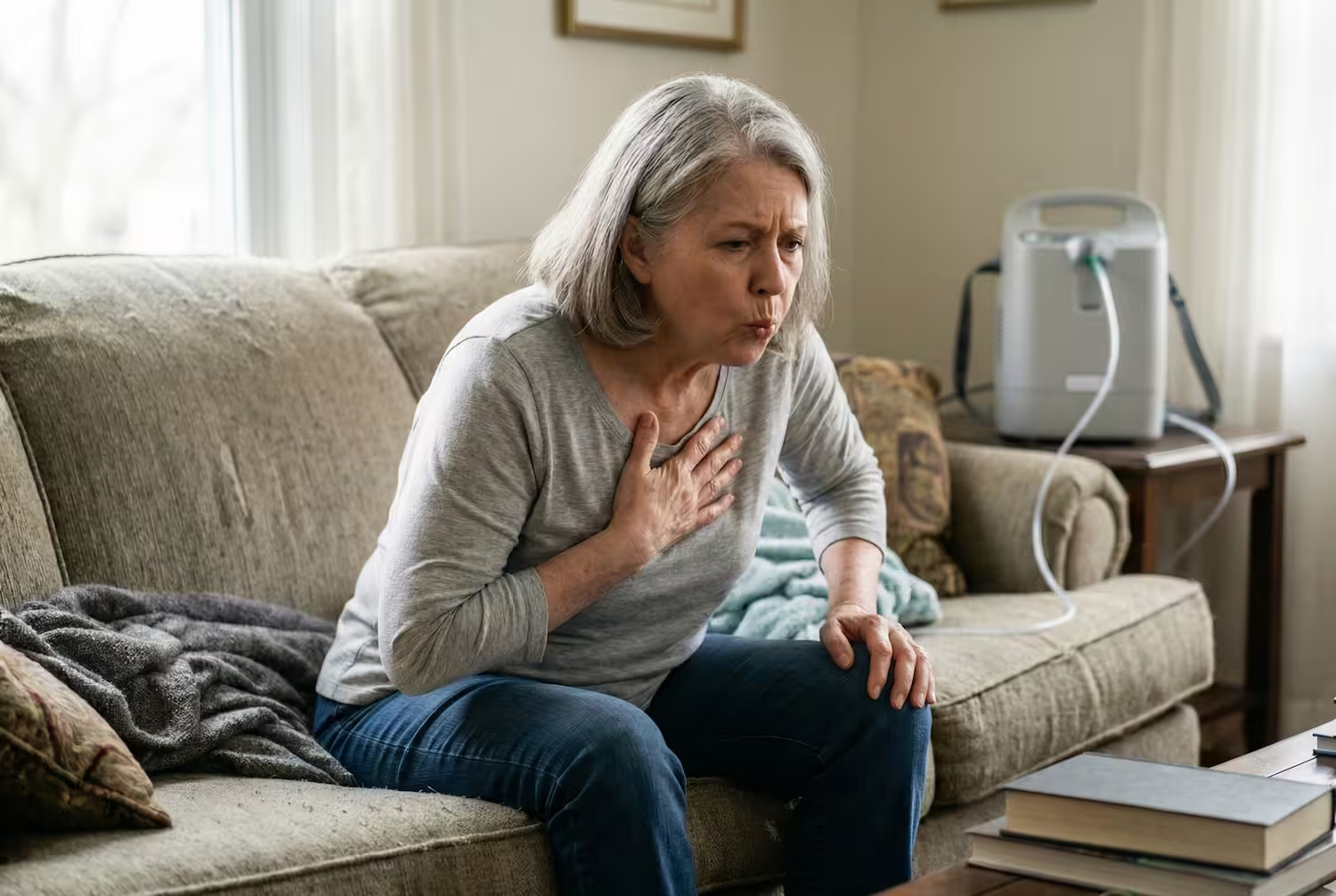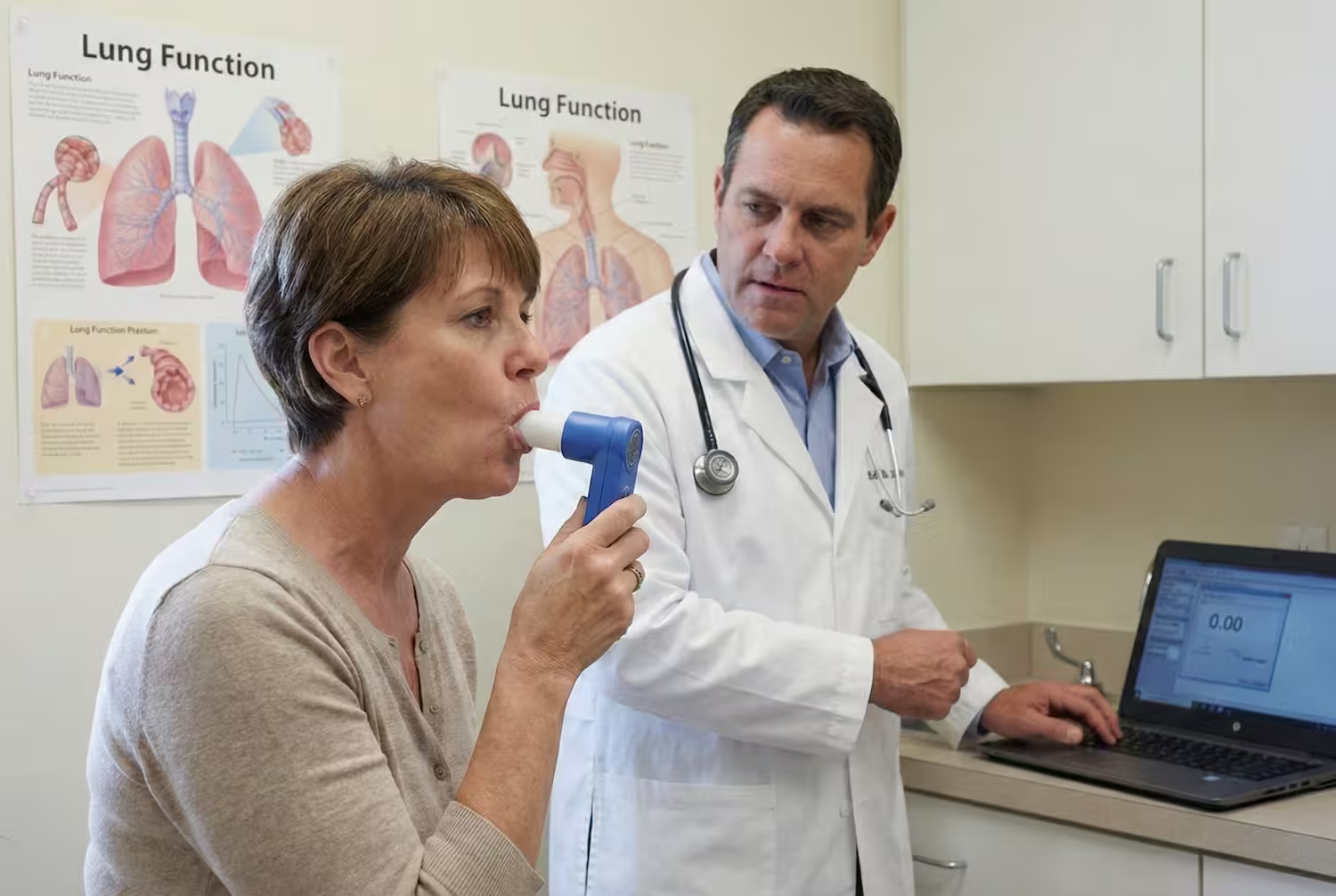
Heart health is one of the most important aspects of your overall well-being. The heart supports all other tissues within your body by providing a continuous supply of oxygenated blood, nutrients, and a means of eliminating waste products away from the tissue.
Doing everything you can to ensure your cardiovascular health is well-supported and healthy can pay dividends in your ability to live a longer and healthier life.
An important aspect of getting your heart health to a good place is understanding where you currently stand in terms of your heart health. A physical exam or visit to the cardiologist is probably the most conclusive way to get a snapshot of your cardiac health, but there are also ways you may be able to get a preliminary of your cardio health before stepping into a doctor's office.
Below is a closer look at ways to assess your heart health at home when you should consult a doctor, as well as ways to support a healthy heart.
How Can You Check Your Heart Health at Home?
A few decades ago, technology for assessing your cardiovascular health was not as widely available as it is today. A number of tools can easily be purchased for the everyday individual to gain knowledge of key cardiac health indicators.
In fact, many smart wearable devices today contain sensors that can measure heart rate and oxygen saturation and even analyze electrical impulses of the heart.
While these tools are amazing feats of technology, it is important to understand that a single reading by itself won’t tell you much about the health of your heart and cardiovascular system. Below is a closer look at ways you can check your heart health at home to understand how well it is working and if there is potential room for improvement.
1. Do the Stairs Test
The first test may seem rudimentary, but it can tell you a lot about your heart health and cardiovascular fitness. The stair test is a simple test that involves climbing a set of stairs at a reasonable pace and seeing how you feel.
An individual with good heart health may feel that their heart rate is slightly elevated, but they shouldn’t experience any shortness of breath, chest pain, or difficulty completing the task due to it being too difficult.
2. Check Your Resting Heart Rate
Resting heart rate refers to how many times your heart beats per minute when you are at rest. A heart rate can be obtained through a tech device like a pulse oximeter or smartwatch, but it can also be done by simply palpating an artery with your fingers. Some of the best locations to obtain a palpated pulse include the carotid artery in the neck and the radial artery in the wrist.
To get an accurate resting heart rate, try and find a time in which you have been inactive and are not experiencing stress. Utilize your device or count the number of beats per minute and get your pulse. An individual with good cardiac health should have a resting pulse anywhere from 60-100 beats per minute
3. Check Your Heart Rate During Exercise
Another thing you can do to test your heart health is to check your heart rate during exercise. The body will naturally increase your heart rate to keep up with the demands of the body under work, but exactly how much your heart needs to compensate can tell you a lot about your heart health.
An individual with poor cardiac health may experience a much higher maximum heart rate during a mildly rigorous activity compared to someone of the same age and weight with good cardiovascular health.
Essentially, the better your cardiovascular health, the more efficient your blood circulation is, which means your blood doesn’t need to work as hard. The worse off your cardiovascular health is, the more internal resistance blood may have, which requires the heart to work faster to compensate.
The optimal maximum heart rate during exercise is variable based on factors like age, sex, intensity, health condition, and weight. There are calculators online that may be able to provide you with an estimate. Still, if you have a preexisting condition or think you may have a problem pertaining to your heart or cardiovascular system, it is highly advised to seek medical advice from a healthcare professional before attempting to test your cardiac health.
4. Monitor Any Symptoms
Another way you can test your heart health at home is to be familiar with your potential risk factors and family history of cardiac health and closely monitor key vital signs. A prime example of this is monitoring your blood pressure if you have high blood pressure or a family history of hypertension. This is one vital sign that is easily monitored from home and can provide you with some level of insight.
Another example includes getting blood tests done regularly if you have high cholesterol. While you can’t necessarily do a blood test at home, you can easily get one done by a third party.
Hypercholesterolemia, also known as high blood pressure, can severely impact your cardiovascular health over time if it goes unmanaged. When the bad cholesterol, known as low-density lipoprotein (LDL), is chronically high, it can begin to collect on the inner surface of your blood vessels.
This buildup is known as plaque and can reduce the efficiency of blood flow throughout the body and can even cause the formation of a clot which can lead to a heart attack, stroke, or other damage to the body by completely cutting off blood flow to a specific tissue.
Getting a blood test that analyzes your LDL and HDL cholesterol levels can provide you with a snapshot of your heart health which can help manage high cholesterol.
When Should You Consult a Doctor?
While the tests mentioned above can give you an idea of your heart health, they are not a substitute for a thorough evaluation by a healthcare professional. If you experience any of the following, it is important to consult a doctor:
Chest Pain or Discomfort
Chest pain can be a large red flag that should be checked out by a qualified healthcare professional. Chest pain can be a significant indicator of a cardiac event — and many cardiac events require swift treatment. If you experience sudden onset chest pain, especially if it is severe, you should consult a doctor.
Shortness of Breath
Shortness of breath, difficulty breathing, or fainting can indicate serious cardiopulmonary conditions like COPD, heart failure, heart attack, pulmonary embolism, and an abnormal heart rhythm. Short-term shortness of breath from an intense exercise or other activity typically is not of worry, but if it persists or occurs with little exertion, it is a good idea to consult a doctor.
Consistently Abnormal Vitals
If you are taking vitals like blood pressure, pulse, blood sugar, heart rate, and oxygen saturation on a consistent basis, you can typically determine what is normal for you. If you find that a vital sign is significantly out of your normal range or notice trends to worsening vitals, it may be a good idea to reach out to your primary care physician for consultation.
History of Cardiovascular Problems
It is also a good idea to consult a doctor if you have a family history of heart disease or if you have other risk factors for heart disease, such as high blood pressure, high cholesterol, or diabetes. The management of these conditions is important to help reduce the risk factors of heart disease and cardiac events.
Talking with a doctor about these sooner rather than later can ensure you get proper care and better understand how you can assess your health with your preexisting conditions and unique risk factors.

How Can You Support Your Heart Health?
Supporting heart health is both simple and relatively difficult to do. Some of the best ways an individual can support their heart health are through aerobic physical activity, eating a well-balanced diet, managing stress, and addressing any health conditions.
The formula is simple, but in execution, it can be incredibly difficult, especially if you are starting from having poor heart health. This is where Carda Health may be able to help.
Carda Health is dedicated to providing quality virtual cardiac and pulmonary rehab to individuals with a need to improve their cardiovascular fitness. Cardiac rehab is a rehabilitation program designed to help improve cardiovascular fitness and heart health in a safe manner. This program can help individuals with cardiovascular disease, a history of heart attacks, or individuals with heart failure.
Carda Health’s virtual program provides monitoring equipment and a team of professionals that can guide you through exercises while ensuring things like heart rate stay within a safe range. In addition to physical exercise, the program can help you to learn more about your health condition and the actions you can take to support a healthier heart.
The Bottom Line
Heart health is unequivocally important when it comes to your overall wellness. Learning how to test your heart health at home can be a great way of staying on top of your cardiovascular health and can provide you with a small snapshot of your health. These snapshots can help determine if your actions are improving your heart health or if lifestyle modifications may need to happen.
If you suspect an issue with your heart health, start by consulting a healthcare professional for the most accurate and personalized advice regarding next steps.
Sources:
Shortness of breath Causes | Mayo Clinic







